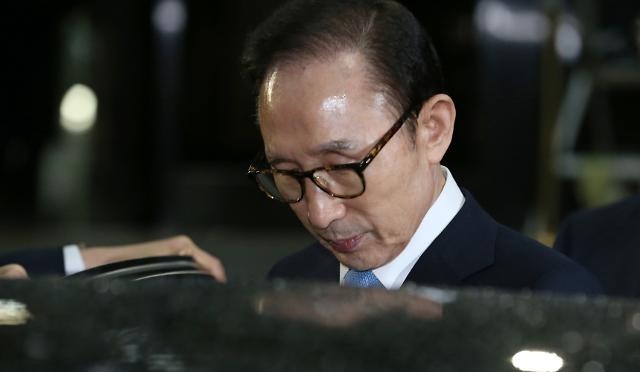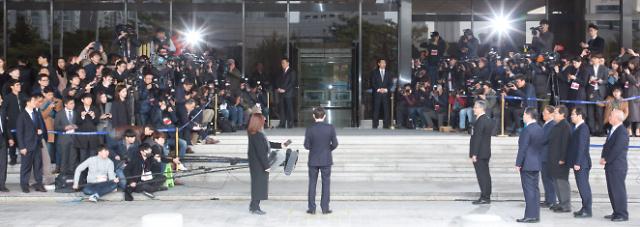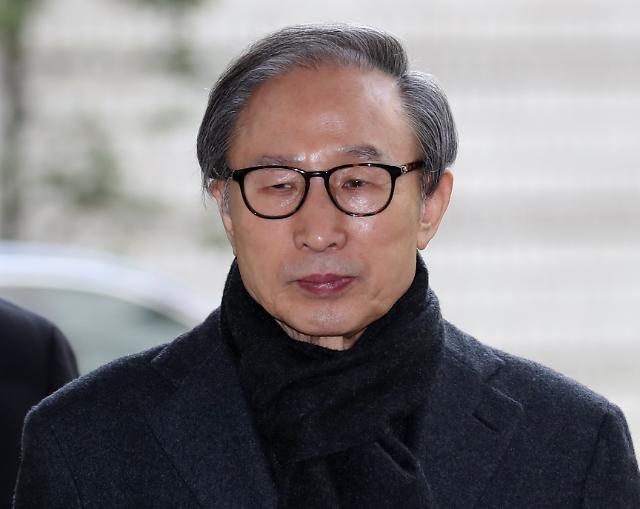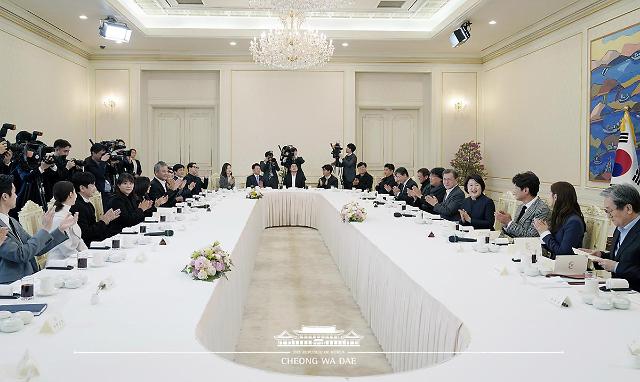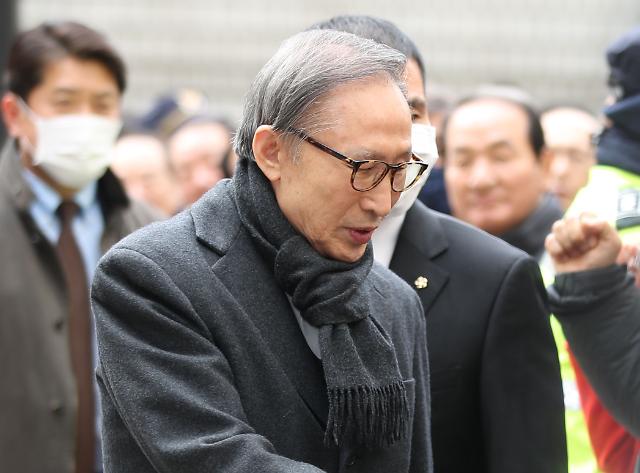[Joint Press Corps.]
SEOUL -- South Korea's conservative ex-president Lee Myung-bak claims to be the innocent victim of carefully-orchestrated political retaliation but he may take an unavoidable path because of his ill-fated relationship with President Moon Jae-in.
Lee, 76, has a unique political background as a businessman-turned former president in South Korea's turbulent political history that prompted two former presidents to die a tragic death and left four others jailed or expelled against their will.
As Seoul mayor from 2002 to 2006, Lee was credited with a massive urban renewal project to restore a 10.9-kilometer-long stream in central Seoul and turn it into a modern public recreation and popular tourist spot.
But as if he knows about his fate when he turned up for questioning on March 14, Lee expressed his hope that he would be the last former president to face humiliation, although he condemned a probe into his alleged wrongdoing as political retaliation for the shocking suicide of his predecessor, Roh Moo-hyun, in 2009. As a former human rights lawyer, Moon had been Roh's political soul mate and served as his chief presidential aide.
[Joint Press Corps.]
Prosecutors insist there is a risk of destroying evidence as Lee has repeatedly denied any wrongdoing despite ample evidence. If a court agrees, he would be the fourth ex-president to be placed behind bars in South Korea's political history that brought a misfortune to former national leaders starting with Rhee Syngman, the first president who ruled from 1948 to 1960.
Rhee, an anti-communist strongman, led South Korea through the 1950-53 Korean War. After the war ended, he was reelected but amended the constitution to win his fourth term in office in 1960 in a disputed election that triggered popular protests. He resigned and fled to live in exile in Hawaii.
In the midst of social and political turmoil caused by Rhee's resignation, Park Chung-hee, a former army general, staged a military coup to seize power in 1961. In 1972, he declared martial law and recast the constitution into a highly authoritarian document. His dictatorship ended in October 1979 when he was assassinated by his intelligence chief.
Park Chung-hee was credited with pioneering South Korea's rapid industrialization. At the same time, he was criticized for the brutal suppression of democracy under his 18-year authoritarian rule.
His successor, Chun Doo-Hwan, took a similar path as an army general and ruled from 1980 to 1988 following a brutal military crackdown on a pro-democracy uprising in the southern city of Gwangju. He was sentenced to death in 1996 for mutiny, treason and other charges. In April 1997, the Supreme Court confirmed his sentence of life imprisonment and ordered a forfeiture of 220.5 billion won (198 million US dollars).
Roh Tae-woo, another former general who led the country for five years from 1988, was arrested and convicted of mutiny and treason for his role in the 1979 coup masterminded by Chun. Both were found guilty of creating massive slush funds with bribes from conglomerates. In 1997, the Supreme Court sentenced Roh to 17 years in jail and have him pay 262.8 billion won in forfeitures. They were pardoned later.
In 2009, Roh Moo-hyun committed suicide by jumping from a mountain cliff behind his home following a humiliating probe by prosecutors into alleged corruption involving his family. Under his rule, freedom of speech blossomed, but his poor performance in economy and diplomacy sparked a strong backlash from conservative groups.
Park Geun-hye, who took office in early 2013 as South Korea's first female president, awaits a verdict in court on charges of abusing her power and conspiring with her jailed crony to extort money from top conglomerates in return for business favors.
Park, 66, was impeached at the height of anti-government protests and the constitutional court upheld her impeachment, accusing her of betraying the confidence of voters. In a final hearing in February, prosecutors demanded a 30-year jail term.

